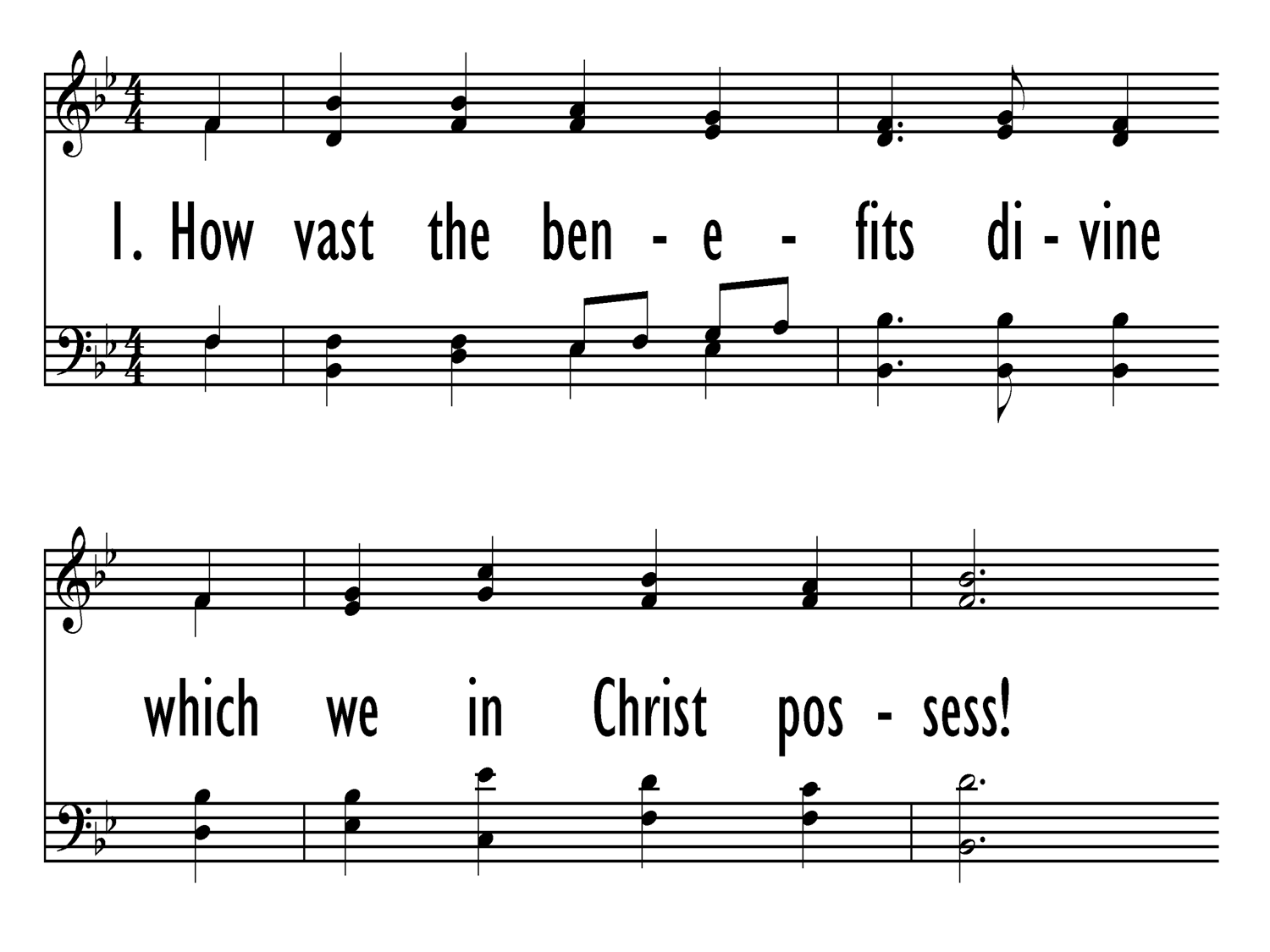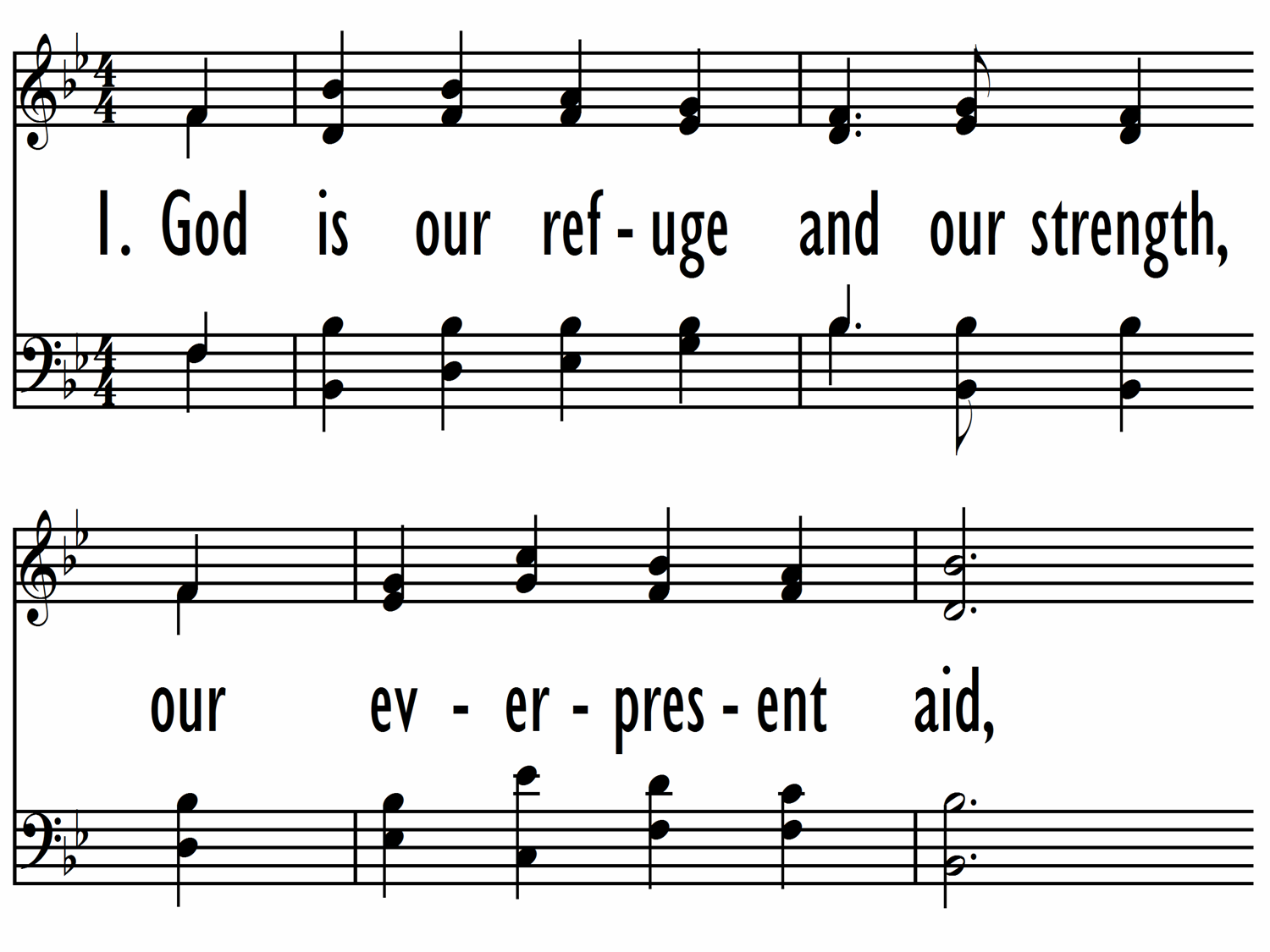- |
User Links
How Vast the Benefits Divine
Hymn Information
- First Line
- How vast the benefits divine
- Author
- Augustus M. Toplady (1774, alt.)
- Tune Name
- BETHLEHEM
- Composer (attributed to)
- Gottfried W. Fink (1842)
- Topic
- Election · God's: Providence · Jesus Christ: Grace · Jesus Christ: Redeemer · Elements of Worship: Forgiviness and Grace
Copyright Information
- Text Copyright
- Public Domain
- Tune Copyright
- Public Domain
- Reprint/Projection Information
- Words and Music: The Words and Music are in the Public Domain; you do not need permission to project or reprint the Words and Music.
Full Text
Scripture References
Further Reflections on Scripture References
This teaching text presents in song the essential points of the doctrine of redemption (like 496 but more comprehensively): only in Christ are we saved, for we have no merit of our own. Our redemption was ordained "before the world began" (see election texts referred to in 496), and our salvation ultimately leads to ruling with Christ in his kingdom.
Bert Polman, Psalter Hymnal Handbook
Confessions and Statements of Faith References
Further Reflections on Confessions and Statements of Faith References
The Catechism says that those who know Christ’s forgiveness are “to thank God for such deliverance” (Heidelberg Catechism, Lord’s Day 1, Question and Answer 2). As a result, “With our whole lives we may show that we are thankful to God for his benefits, so that he may be praised through us, and that we may be assured of our faith by its fruits, and so that by our godly living our neighbors may be won over to Christ” (Heidelberg Catechism, Lord’s Day 32, Question and Answer 86).
How Vast the Benefits Divine
Additional Prayers
How Vast the Benefits Divine
Tune Information
- Name
- BETHLEHEM
- Key
- B♭ Major
- Meter
- 8.6.8.6 D


 My Starred Hymns
My Starred Hymns






